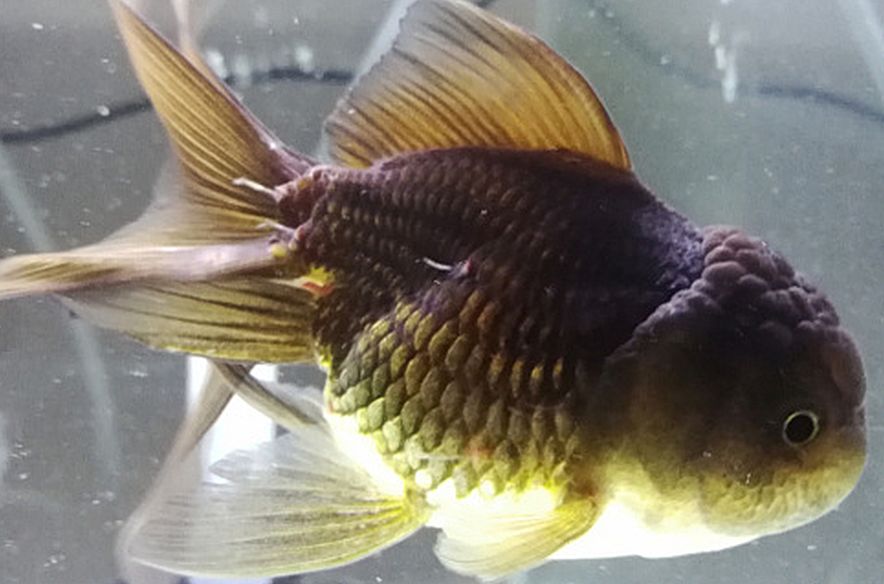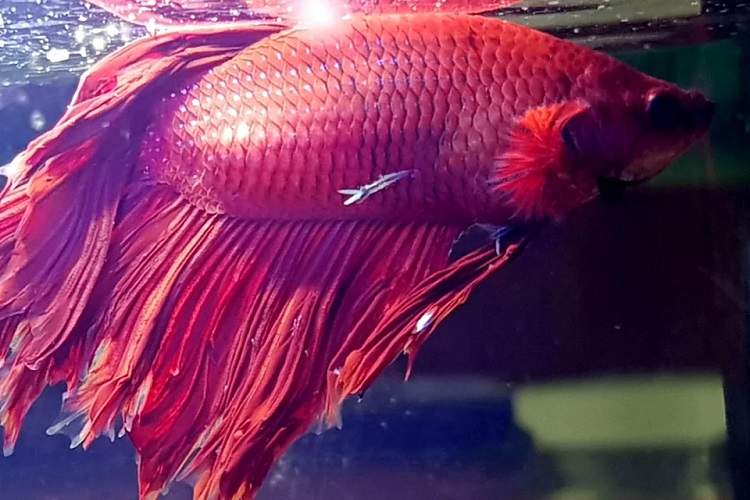Betta Anchor Worm
Betta fish are a beautiful addition to any aquarium. They are known for their vibrant colors and long, flowing fins. However, like any living creature, they are prone to diseases and parasites that can affect their health. One such parasite is the betta anchor worm.
The Pain Points of Betta Anchor Worm
Betta anchor worm is a type of parasitic worm that burrows into the skin of betta fish. This can cause a number of problems for the fish, including irritation, infection, and even death if left untreated. Common symptoms include red or white spots on the fish's body, itching and scratching, and a loss of appetite.
Target of Betta Anchor Worm
Betta anchor worm typically affects betta fish in aquaria, although it can also infect other types of fish. The parasite is most commonly introduced into the aquarium through contaminated water or live food. It is important for fish owners to be aware of the signs and symptoms of betta anchor worm so that they can take steps to prevent its spread.
Summary of Main Points
In this article, we will take a closer look at betta anchor worm and its effects on betta fish. We will cover what it is, how it spreads, and what symptoms to look for. We will also discuss treatment options and provide tips for preventing the spread of this parasite in your aquarium.
Betta Anchor Worm: An In-Depth Look
My personal experience with betta anchor worm began when I noticed that my betta fish was scratching himself against the side of the tank more than usual. Upon closer inspection, I noticed that he had small red spots on his sides. After doing some research, I discovered that he had been infected with betta anchor worm.
Betta anchor worm is a type of parasitic crustacean that lives on the skin of fish. The adult worm looks like a small thread or worm and can be seen with the naked eye. The female worm burrows into the fish's skin and lays eggs. The eggs hatch into larvae, which then attach themselves to the fish's skin.
If left untreated, betta anchor worm can cause serious damage to a fish's health. The burrowing worm can cause severe irritation and damage to the fish's skin. This can lead to secondary infections and even death in some cases. In addition, the eggs and larvae can continue to infect other fish in the aquarium.
Treating Betta Anchor Worm
If you suspect that your betta fish is infected with anchor worm, it is important to act quickly to prevent the spread of the parasite. The first step is to isolate the infected fish in a separate tank to prevent the spread of the parasite to other fish. Next, you should treat the fish with a parasite medication that is designed to kill anchor worm. There are many different types of medications available, so it is important to choose one that is specifically designed to treat anchor worm.
In addition to medication, it is important to keep the aquarium clean to prevent the spread of the parasite. This includes regularly cleaning the tank and water, removing any infected fish, and avoiding introducing new fish to the tank until the parasite has been completely eliminated.
Preventing Betta Anchor Worm
Preventing betta anchor worm is much easier than treating it. The key is to avoid introducing contaminated water and live food into the aquarium. This can be done by using a high-quality water filtration system and avoiding live foods that may contain the parasite.
If you do notice any signs of betta anchor worm in your aquarium, it is important to act quickly to prevent the spread of the parasite. By taking a proactive approach, you can keep your betta fish healthy and happy for years to come.
Question and Answer
Q: How can I tell if my betta fish has anchor worm?
A: Look for red or white spots on your fish's body, as well as increased scratching or rubbing against objects in the tank.
Q: Can betta anchor worm infect other types of fish?
A: Yes, betta anchor worm can infect other types of fish in the same aquarium.
Q: How is betta anchor worm spread?
A: It is typically introduced into the aquarium through contaminated water or live food.
Q: Can betta anchor worm be treated with over-the-counter medications?
A: It is important to choose a medication that is specifically designed to treat anchor worm, as over-the-counter medications may not be effective.
Conclusion
Betta anchor worm is a serious parasitic disease that can affect the health of your betta fish if left untreated. However, with proper care and attention, it can be prevented and treated. If you suspect that your betta fish is infected with anchor worm, it is important to act quickly to prevent the spread of the parasite and keep your fish healthy and happy.
Gallery
Betta Fish Awareness Day: Betta Fish Care: Betta Fish Disease And

Photo Credit by: bing.com / betta fish parasites fungus sick disease external anchor worms male body veiltail his care kill causes awareness
Anchor Worms (Lernaea Spp.) | Tropical Fish Keeping

Photo Credit by: bing.com / fish anchor worms keeping tropical
Does My Betta Have Anchor Worms Or Ick? :'( | AquariaCentral.com

Photo Credit by: bing.com / anchor betta ick worms does aquariacentral patty
Anchor Worms On Betta Fish - Treatment & Prevention Guide

Photo Credit by: bing.com /
Common Betta Fish Diseases -With Treatments For A Sick Betta

Photo Credit by: bing.com /
